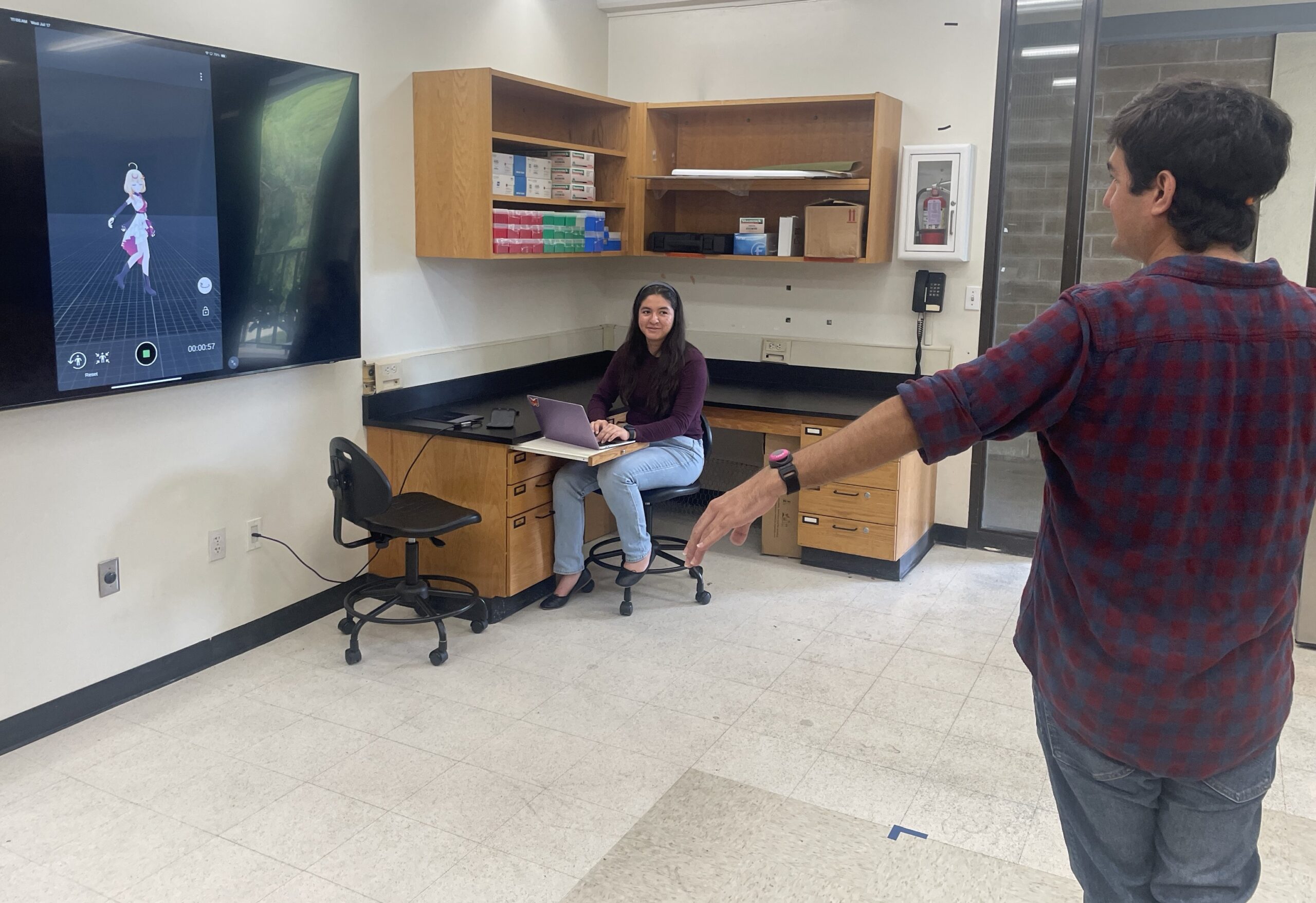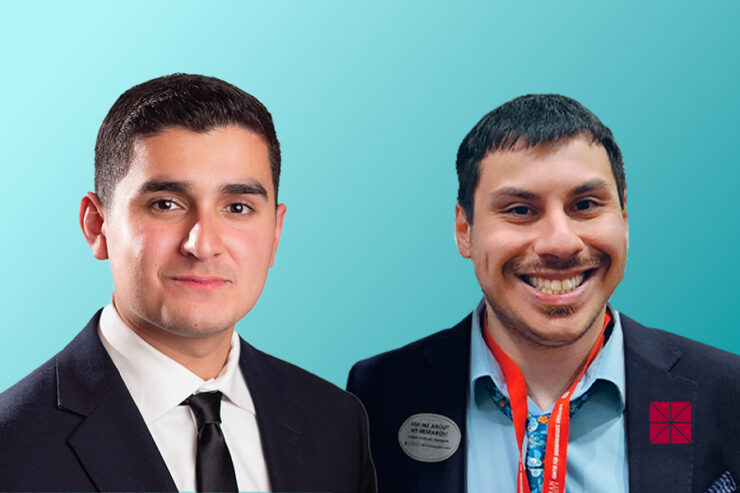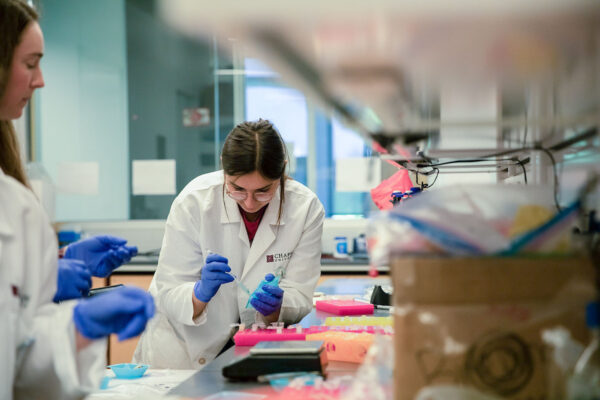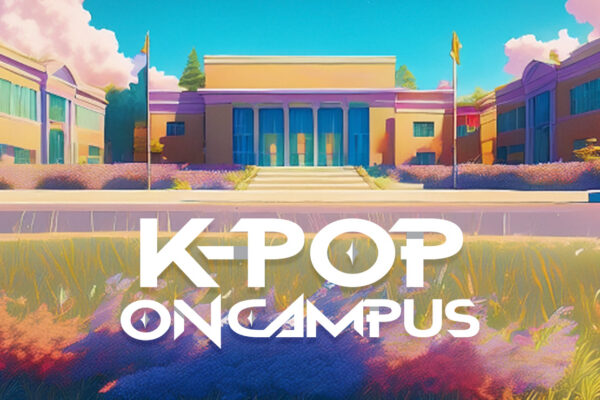At Chapman University, students are tackling questions with far-reaching implications—whether in the lab or in public policy. Their work demonstrates how research can provide real-world solutions to global issues.
Estévan Harris ’24 and Robert Arellano ’26 are two such students.
Harris, a biochemistry and molecular biology major at Schmid College of Science and Technology, is exploring sustainable approaches to agriculture that could reduce environmental impact. Arellano, majoring in political science at Wilkinson College of Arts, Humanities, and Social Sciences, is studying the role of AI tools in elections to better understand their risks and opportunities. Together, their stories illustrate Chapman’s mission to empower students through mentorship, resources and innovative programs.
Advancing sustainable agriculture through biochemistry
Harris’ research has the potential to reshape how agricultural practices meet the demands of sustainability. By studying ferredoxin, a protein essential for natural nitrogen fixation, he is exploring ways to reduce dependence on synthetic fertilizers.
“What we’re learning about ferredoxin could lead to reducing fossil fuels in agriculture—a more natural process, better for the crops and the environment,” Harris explains.
His research aligns with one of agriculture’s greatest challenges: feeding a growing population while minimizing environmental harm. By unlocking the potential of natural processes, Harris hopes to contribute to solutions that are not only effective but accessible to farmers worldwide.
Harris’s journey in science is also a story of persistence. Diagnosed with cerebral palsy, he approaches lab work with precision and focus. His approach highlights the value of adaptation and resilience in tackling complex problems.
“I just do the best I can,” Harris says. “I’m a little slower than the average student, but I make sure to be careful, so I don’t have to repeat anything.”
Dr. Cedric Owens, associate professor of biochemistry at Schmid College, has guided Harris in adapting lab techniques to his needs and developing expertise in protein crystallography.
The disability services team has also played a critical role, ensuring Harris has the tools and support to thrive in a demanding field. Reflecting on his experience, Harris said, “I wouldn’t have achieved nearly as much as I have if I’d gone to another university.”
Investigating AI’s role in elections
Arellano’s research explores the evolving relationship between technology and democracy. With the recent U.S. presidential election marking the first where AI tools like ChatGPT and Midjourney were widely accessible, his work examines how these technologies could influence public opinion and voting patterns.
“We’re entering uncharted territory,” Arellano says.
Through Chapman’s Summer Undergraduate Research Fellowship (SURF), Arellano analyzed AI’s potential to improve voter engagement while assessing risks like misinformation and deepfakes.
“AI technologies are largely unregulated, leaving room for both positive and negative impacts on societal functions,” he explains. Arellano’s research seeks to understand these impacts and inform responsible practices, balancing innovation with accountability.
His interest in the intersection of technology and public policy reflects Chapman’s emphasis on interdisciplinary exploration. By combining political science with cutting-edge research on AI, Arellano is bridging academic fields to address real-world concerns.
“My project examines how AI might shape public opinion and voting patterns, considering both its opportunities and challenges,” he says.
Chapman’s investment in research infrastructure has supported Arellano’s efforts. Access to a high-performance supercomputer and the university’s emphasis on critical inquiry have enabled him to pursue this timely topic. The mentorship provided through the SURF program has also helped him refine his methodology and expand the scope of his analysis.

A Shared Commitment to Impact
Through their research, Harris and Arellano are addressing critical issues with solutions that could benefit society as a whole.
Harris’ work on sustainable agriculture will reduce environmental harm while meeting the needs of a growing population. Arellano’s exploration of AI in elections aims to safeguard democratic integrity as technology advances. Both students demonstrate how research can illuminate pathways to a more sustainable and equitable future.
Chapman is dedicated to equipping students with the resources, mentorship, and support needed to make meaningful contributions. As Harris put it: “I want to help others, whether through climate change solutions, cancer research, or CRISPR. I just want to make an impact.”




